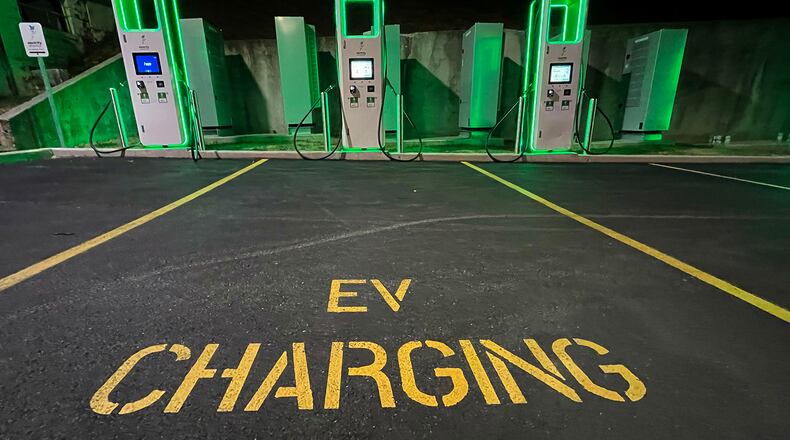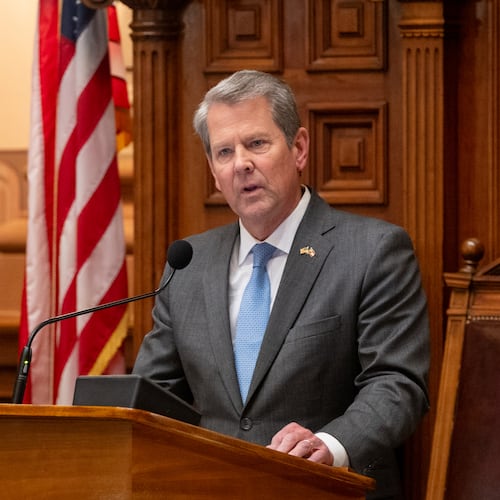The Georgia Senate Monday approved a bill that would pave the way for taxing the power used by electric vehicles.
Senate Bill 146 would also regulate electric-vehicle chargers much as the state regulates gasoline pumps. And it would allow businesses such as convenience stores to sell electricity by the kilowatt hour.
The House of Representatives approved the measure by a vote of 175-1. The Senate agreed to the House’s changes to the bill by a vote of 51 to 4. It now heads to Gov. Brian Kemp for his signature.
The legislation comes as the country prepares for a boom in electric vehicles — from about 3 million on the road in 2021 to 48 million by 2030. It also comes as Georgia seeks to be a national leader in electric-vehicle manufacturing.
A legislative panel spent months studying how Georgia can prepare for that boom. SB 146 begins to address it.
The bill would require the state Department of Agriculture to regulate electric-vehicle charging stations. Among other things, the department would test chargers to ensure customers get the electricity they pay for.
SB 146 also would allow businesses to sell electricity for vehicle charging by the kilowatt hour — a move advocates say is needed to encourage the private sector to install chargers as electric vehicles proliferate.
The move also would allow Georgia to tax the electricity at public charging stations to help pay for road construction. The tax would be in addition to the $211 annual registration fee paid by electric-vehicle owners.
Currently, such construction is paid for primarily through motor fuel taxes that are expected to decline in the future as engines become more fuel-efficient and electric vehicles proliferate.
The taxing provision has sparked concern from some electric-vehicle advocates. Under an earlier version of SB 146, the tax would have been 3.47 cents per kilowatt hour — higher than levies in the handful of states that have adopted similar taxes to date. Under the latest version, the tax would be 2.84 cents per kilowatt hour — in line with the other states.
Critics also worry the bill could discourage businesses from providing free charging because the tax would apply whether they charge or not.
Rep. Rick Jasperse, R-Jasper, said various issues involving the taxing of electricity for vehicles likely will be revisited next year — before the new tax takes effect in 2025.
About the Author
The Latest
Featured




